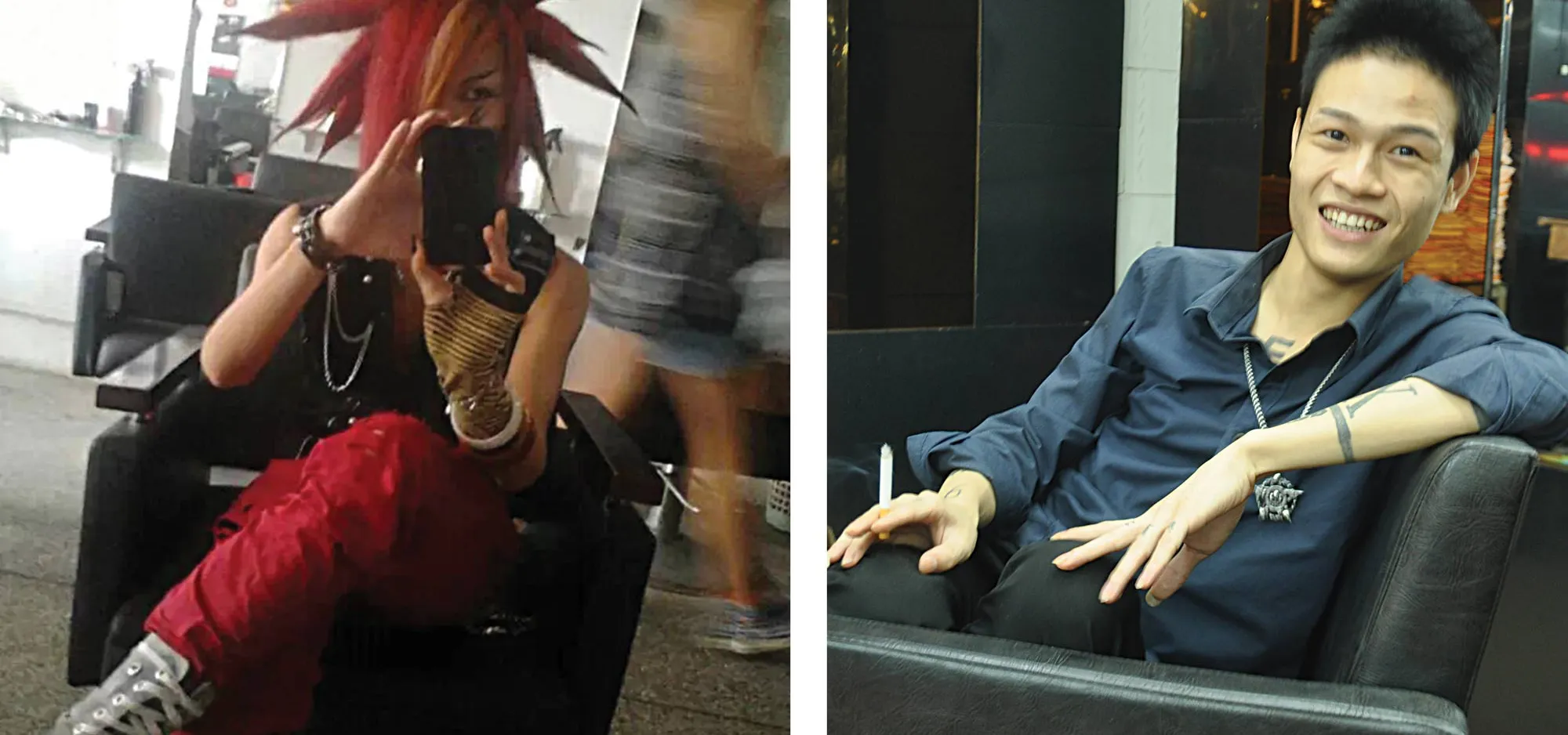The show’s over for the father of China’s oddest subculture, the shamate
Dressed in a dark blue, long-sleeved shirt, tight jeans, and black leather shoes, Luo Fuxing looks nothing like the spikey-haired figure with purplish lipstick who, 10 years ago, founded one of the China’s best-known—and least-loved—subcultures.
It was 2007 when China’s internet forums and social media platforms seemed suddenly filled with members of the “shamate family.” The shamate were mostly young men from small rural communities, who bonded on and offline over their shared passion for flamboyant clothing, hair, and makeup.
To some, they looked like exotic aliens; to others, more like reject members of a Sex Pistols tribute band. But there’s no doubt the shamate were influential. According to Wang Bin, a sociologist at Central China Normal University, in September 2014 there were close to 17 million shamate webpages, 1.5 million posts on the Baidu Shamate Forum, and more than 200 active QQ groups. The subculture had become a national phenomenon, Wang wrote, as well as an entertainment subject for all.
Unfortunately, much of Chinese society didn’t share the enthusiasm. Few understood shamate culture, and most labeled them idiotic, with some even calling them the “fallen generation.” A decade on, while a few still cling to the lifestyle, most of the acolytes now have jobs and families, and have given up their old ways.
“We never wanted to be understood by the masses anyways,” says Luo, who has become reluctantly known as the father of shamate. It was in fourth grade that Luo came across a QQ group devoted to punk-rock, and tried to mimic their bands’ hairstyles. When he posted a picture online, someone commented that he looked “fashionable.”
He searched the Chinese word online, and an English translation, “smart,” jumped out. The pronunciation sounded like “shamate,” so Luo created the first QQ group under that name. Gradually the group grew, posting photos on forums, and branding themselves “the shamate family”. At one point, Luo remembers being in charge of several dozen QQ groups, each with more than 1,000 members. Most were teenagers from small cities with migrant parents.
Looking back at that era, Luo said he created this family partly because he felt attracted to its fashion, but also because he thirsted for attention. His father worked on construction projects in Shenzhen, Guangdong province, while he and his mother stayed in the city of Meizhou, 360 kilometers away. Busy with work every day, his mother had little time for him, and Luo received scant attention at school. “I sat in the back all the time and slept,” he recalls. “When I didn’t want to sleep anymore, I skipped school and didn’t want to go back again.”
Gradually, the “family” migrated to offline groups as well: Shamate members would walk the streets together, drawing stares with their outlandish looks and clothing.
“Our goal was to make friends and meet people. If you are at the bottom of the social ladder, if you are a worker in a factory, on an assembly line, you can hardly know anybody,” Luo says. “You are all alone in a first-tier city, you must feel lonely.”
He didn’t mind that people calling them names and belittled them in public; through other shamate, people like Luo felt connected to the outside world. But last year, Luo’s father passed away from cancer and he suddenly felt the weight of responsibility on his shoulders. He now supports his mother through his job at a barbershop in Shenzhen, and eventually hopes to make enough money to open his own shop back home, so he can be closer to his actual family.
Today, the shamate’s influence is waning as original members grow up while the young men of today’s internet age are more attracted to live streaming on apps such as Kuaishou or Douyu. Now, whenever people approach him about shamate culture, Luo tells them about the positive side—that far from being a fallen generation, shamate were merely youths experimenting, and that people always change as they age. And while he refuses to go on game or chat shows as the “father of shamate,” Luo still wants to set a good example. “I don’t want to be an internet sensation,” he explains. “It feels like I’m begging others for money.”
A Family Affair is a story from our issue, “Cloud Country.” To read the entire issue, become a subscriber and receive the full magazine.












